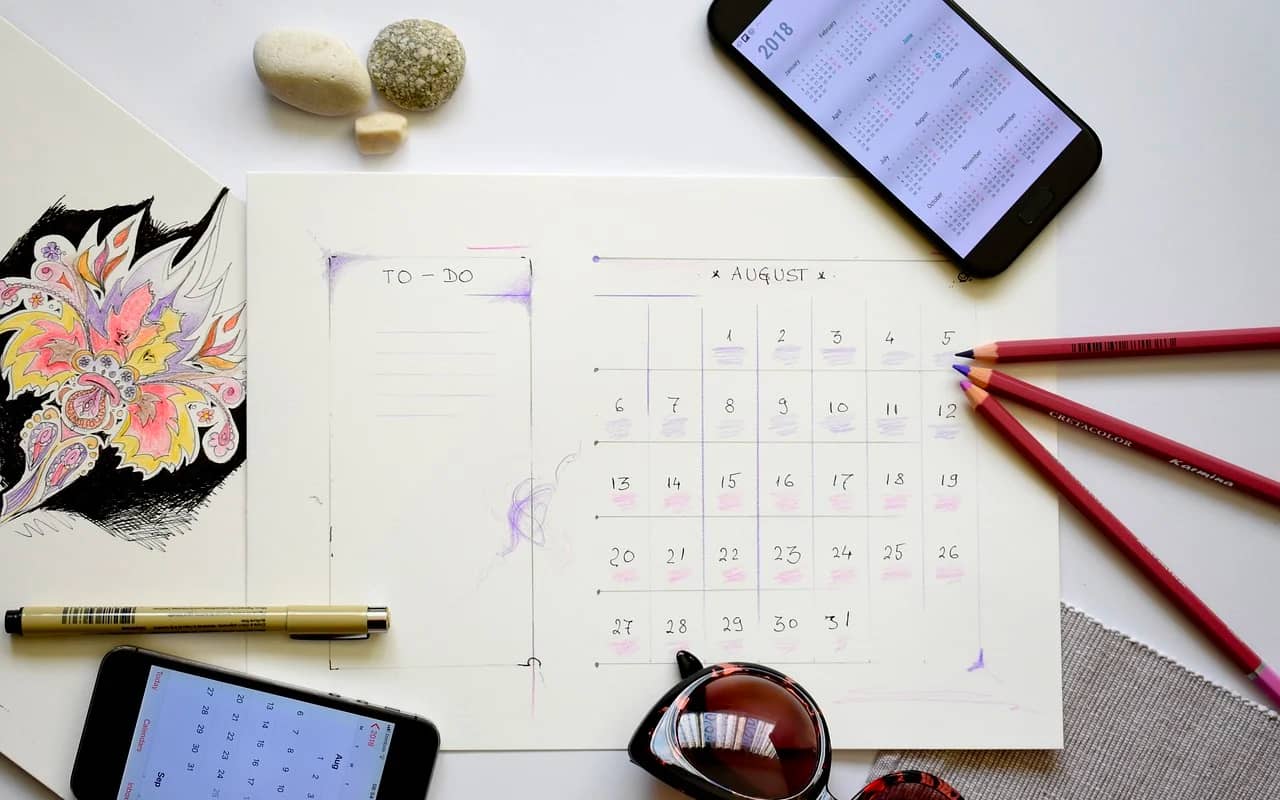 Can you learn two languages at once?
Can you learn two languages at once?
The answer is absolutely yes.
However, there’s a number of considerations in making the journey a success.
I’ll cover them all on this page to make sure learning more than one language at a time makes sense for you. And I’ll do my best to help you hit the ground running.
How can I speak so confidently about how to do it?
On top of learning languages as part of my PhD at York University, I currently study Sanskrit and Mandarin at the same time, while maintaining my German.
Based on these experiences, I’m confident that you can also make studying multiple languages at the same time work.
Not only that, but you’ll learn more about your mother tongue along the way.
You’ll also develop more brain health, improve your salary expectations and have a great adventure along the way.
And I want to congratulate you for asking: Is it bad to learn two languages at once? That shows you already intuit that it might not be right for you.
At least… not yet.
Can You Learn Two Languages At Once?
As mentioned, the answer is yes. Many people who have learned at least one language first have done it successfully.
But the real question you need to ask is:
Is it realistic for me to study two languages at once?
You see, most people who succeed at learning multiple languages have already learned at least one second language first.
And this experience has given them both a language and the meta-learning skills so essential to becoming a polyglot.

Here are some questions to ask before taking on two or more languages at once:
- Do I have the time to study each language at least 4x per week?
- Do I have the resources to get the materials I need for each language?
- Am I willing to find enough speaking partners to practice each language sufficiently?
- Are there any connections between the languages I want to learn to create an advantage?
- Are the languages so different from each other that I will not benefit from any advantages?
- Have I created a track record of success for myself by mastering at least one language first?
I suggest writing out your answers to each of these questions in a journal. They can help you legitimately decide if studying two languages at the same time is going to be a winning situation for you.
How to Learn Two Language At Once:
11 Things You MUST Do
Once you’ve decided that tackling several languages at the same time is right for you, here are some powerful tips so you can hit the ground running.
One: Gather The Right Language Learning Resources
The wonders of the Internet never end, but access to many resources is not necessarily a gift.
When studying any language, consider placing limits on yourself.
For example, I like to limit myself to just one book, one audio program and one speaking partner at a time.
When studying two languages, that number doubles. This increase in materials that need to be covered means the next tip is especially important.

Two: Prioritize Your Time
There’s no magic number when it comes to the amount of time you’ll need to spend on the languages you’re learning.
However, you will need to spend as much time as possible – always focusing on the right things that help you make substantial progress. These activities are:
- Reading
- Writing
- Speaking
- Listing
- Remembering
One of my favorite tools for organizing time is called The Freedom Journal. I’ve created a tutorial about how to use The Freedom Journal for language learning, and you can always recreate the effect in any journal.

Three: Study Consistently
When organizing your time, keep the need for consistency in mind.
Listen, it would be nice to show up once in a while and still make progress.
But learning is like gardening. The neurons in your brain responsible for memory are like vines on a tomato plant. They need to be watered regularly in order to help memories form. This is especially true when developing your bilingualism, something outlined in-depth by language learning expert Bartosz Czekala.
Expect to study each language at least four times a week. Spend at least an hour on each session. This is the bare minimum, and obviously more time will lead to more results.
Four: Consider Learning Related Languages
This point is not universally true, but some people will benefit from studying related languages.
For example, if you study Latin and Spanish at the same time, this could give you an advantage. It can also give you even more advantage if you add on French, Italian and/or Portuguese later.
Note: If you’re picking up multiple tongues for trade, these are some of the best languages to learn for business with some additional tips to consider.
However, as some sources note, there are people who will find the similarities confusing. I feel those other sources exaggerate this point and suggest exploring for yourself to see if there’s an advantage.
(Note: Historically, people had little or no problem learning similar languages. I’m not sure why people are saying you should only study unrelated languages, and they certainly haven’t given any evidence explaining why this should be the case.)
You might also want to study languages that have fallen out of use, such as Sanskrit or Biblical Hebrew. There are also “constructed languages” like Esperanto and Toki Pona. Many language learners find that time with these languages improves their progress overall.
Five: Avoid Ineffective Apps
I have done experiments with apps and even wrote about what I think is the best language learning software.
Even though some apps have their place, ultimately you want to reduce the time you spend on them.

The exception to the rule are the ones that allow you to spend time with native speakers, and ideally record the discussion for easy review.
Six: Follow the Advice of Successful People
Success leaves clues.
Yet so many people follow the advice they see on corporate websites.
If you want to learn multiple languages at the same time, follow people who are actually doing this themselves.
Usually what you’ll find is that they actually aren’t learning more than one language at a time.
Instead, they’re maintaining languages they’ve already learned while adding a new one.
This is a subtle, but key difference.
Seven: Don’t Let Consistency Erode Variety
Consistency will always be important when learning a language.
However, your brain benefits from variety.
And there’s also a principle called interleaving you can benefit from.

For example, there’s no getting past the fact that reading a novel in German and another one in Chinese costs more time than focusing on just one of them.
However, switching between them actually benefits how you learn.
The trick is to also be sure that your cognitive shifting includes speaking, writing and listening in ample doses as well.
(Note: interleaving and cognitive-switching are not to be confused with multitasking. That behavior is still considered counterproductive.)
Eight: Seek Accountability If You Need It
Some learners are perfectly solid on their own. They are accountable to themselves.
However, if you really want to study several languages at the same time, you might find you need additional support.

To get it, you can either:
- Join a language learning community
- Hire a teacher or coach
- Combine both
If you go for a coach, look for someone who excels at long term performance coaching with an emphasis on time management. And make sure they walk their talk.
Nine: Take Strategic Breaks
Learning multiple languages at once makes it seem like you’re going to be busy all the time.
However, you can actually help yourself learn better by taking breaks.
The trick is to make sure that a two week pause doesn’t because two months and then two years.
Having accountability helps in this regard, as does scheduling.
One powerful hack is to pay for your language learning sessions in advance and get them on the calendar.

That way, if you take a two week break, it really is a two week break because you already have your next session already booked and paid for.
Ten: Use Memory Techniques
One way to create a distinct advantage for yourself is to understand the role of mnemonics in language learning.
Whether it’s flashcards or the Memory Palace technique for language learning, strategic use of your memory will pay off.
Now, some people think that learning to use their memory better is a deviation from just diving in and using rote repetition.
That doesn’t have to be the case at all.
You can actually use the languages you’re learning to master memory techniques that make studying faster, and that makes both a lot more fun.
Then, when you’re ready, you can explore ways to have vocabulary from different languages in the same Memory Palaces at the same time.
For example, there’s nothing stopping you from having the association you use to memorize “shadow” in both German and Chinese in the same Memory Palace. I extend that example further in this video so you can learn more about how this process works:
Eleven: Study The Craft Of Language Learning
Language learning is not that difficult.
That said, every skill reveals more and more levels of nuance the more you get into it.
Consider becoming a student of both learning as such and linguistics.
For example, you might want to read David Crystal’s wonderful books about language.
Or you might want to focus more on specific topics, such as those covered in Achieving Native-like Second-language Proficiency: Speaking.
Finally, make sure to follow those who study and demonstrate success with learning multiple languages. Here are some suggestions:
The more you hang around these learners, the more their passion will rub off on you!
How To Learn Two Languages At Once?
In a word: strategize.
It’s entirely possible to succeed and anyone can do it.
However, the best favor you can do for yourself is to be realistic about the process and the time commitment.
When you set and manage your expectations correctly, you make it possible to benefit from the strategies and tools available to you now.
And the best part is that learning languages strategically has other benefits, such as improving your concentration.
So let me know:
What other strategies have you used when remembering vocabulary from multiple languages?
And what are the languages you most want to study at the same time? And why?
Related Posts
- The Most Controversial Language Learning Technique In The World
In this episode of the Magnetic Memory Method Podcast ... controversy about using mnemonics in…
- Stoic Secrets For Using Memory Techniques With Language Learning
Christopher Huff shares his Stoic secrets for using memory techniques when learning a language. You'll…
- How Long Does It Take To Learn A Language? The Shocking Truth
If you're wondering how long it takes to learn a language, here are answers. Also…







